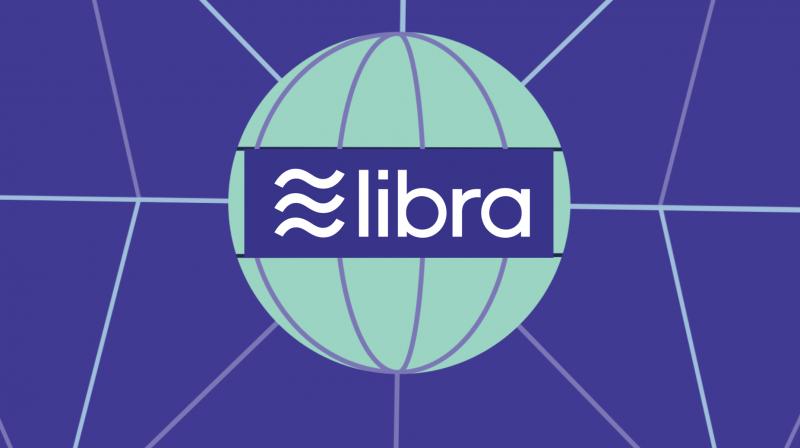\'Facebook should not be trusted with \'crazy\' cryptocurrency plan\': senators
Facebook shocked regulators and lawmakers with its announcement on June 18 of hoping to launch a cryptocurrency called Libra in 2020.

Democratic and Republican lawmakers said on Tuesday that Facebook Inc’s track record of what they described as untrustworthiness should stand in the way of it launching a digital currency, labeling the plan “delusional” and “crazy” at a Senate hearing.
Facebook is fighting to get Washington onside after it shocked regulators and lawmakers with its announcement on June 18 that it was hoping to launch a cryptocurrency called Libra in 2020.
Since then the social media company has faced criticism from policymakers and financial watchdogs at home and abroad who fear widespread adoption of the digital currency by Facebook’s 2.38 billion users could upend the financial system.
“Facebook has demonstrated through scandal after scandal that it doesn’t deserve our trust,” Democratic senator Sherrod Brown, the ranking member of the Senate Banking Committee, said in his opening remarks. “We’d be crazy to give them a chance to let them experiment with people’s bank accounts.”
Brown added during questioning that he thought it was “delusional” to think individuals would trust the social media company with their “hard-earned” money.
Before announcing its Libra plans, Facebook was already facing a backlash over mishandling user data and not doing enough to prevent Russian interference in the 2016 U.S. presidential election.
David Marcus, the company’s top executive overseeing the project, testified on issues ranging from how Libra could affect global monetary policy to how customer data will be handled.
He received a frosty welcome from Democratic lawmakers and several Republicans, who shared many of the same concerns.
“I don’t trust you guys,” said Republican Senator Martha McSally. “Instead of cleaning up your house you are launching into a new business model.”
Marcus, who was president of PayPal from 2012 to 2014, tried to assuage concerns by promising that Facebook will not begin offering Libra until regulatory issues are addressed. “We know we need to take the time to get this right,” Marcus, who is also due to testify before the House Financial Services Committee on Wednesday, told lawmakers.
David Marcus, the company’s top executive overseeing the project, testified on issues ranging from how Libra could affect global monetary policy to how customer data will be handled.
He received a frosty welcome from Democratic lawmakers and several Republicans, who shared many of the same concerns.
“I don’t trust you guys,” said Republican Senator Martha McSally. “Instead of cleaning up your house you are launching into a new business model.”
Marcus, who was president of PayPal from 2012 to 2014, tried to assuage concerns by promising that Facebook will not begin offering Libra until regulatory issues are addressed. “We know we need to take the time to get this right,” Marcus, who is also due to testify before the House Financial Services Committee on Wednesday, told lawmakers.
Lawmakers raised a range of concerns, including about how the company plans to prevent money laundering, how consumers’ data and funds will be protected and how the Geneva-based association created to run the system will be regulated.
“I know we have to earn people’s trust for a very long period of time,” Marcus said when asked whether consumers could trust Facebook not to share their payment information.
The social media company has pledged that its payments subsidiary called Calibra will only share customer data with Facebook and external third parties if it has consent, or in “limited cases,” where it is necessary.
Under Wraps
Critics have expressed anger that the company would advance such a potentially groundbreaking project so far without extensive input from policymakers, especially when the company was already in the spotlight over privacy issues.
Facebook allocated a small fraction of its vast workforce to work on the project, Kevin Weil, who runs product for the Libra initiative, told Reuters on June 18.
One former employee told Reuters the company tried to keep the project under wraps even internally. Staff who were not involved knew little about it, not even that it was operating under the name Libra.
In the weeks leading up to the announcement, the company began reaching out formally to key regulators including the Federal Reserve, the Treasury and the Commodity Futures Trading Commission. But two people with knowledge of the discussions said the conversations remained vague, with key details of the project discussed only on a theoretical level.
On Tuesday, U.S. Securities and Exchange Commission chair Jay Clayton told Reuters on the sidelines of a Washington event that he had not discussed the Libra project with Facebook since its announcement but would welcome more information.
Some lawmakers have been frustrated by the lack of clarity from Facebook before and since June 18, three congressional sources said. One Democratic aide described the company’s contacts with lawmakers as “inept and entitled.” Facebook has said that it announced the project in its early stages to get feedback from stakeholders, a point Marcus reiterated at the hearing on Tuesday.

